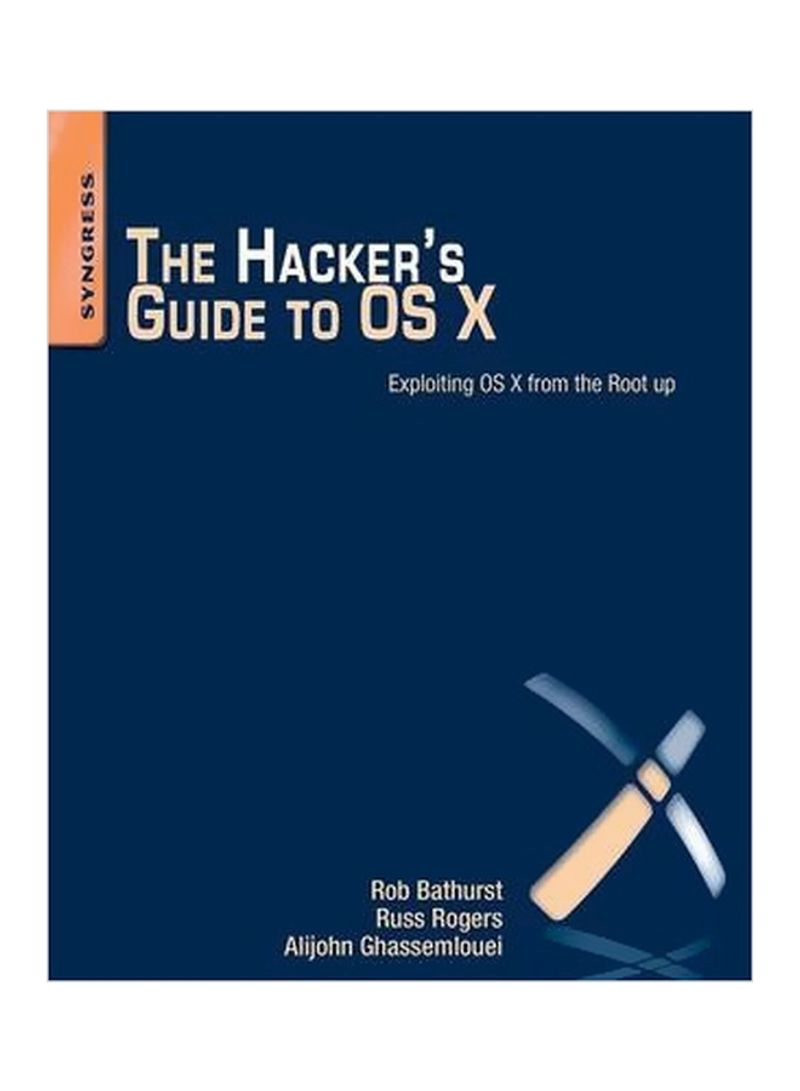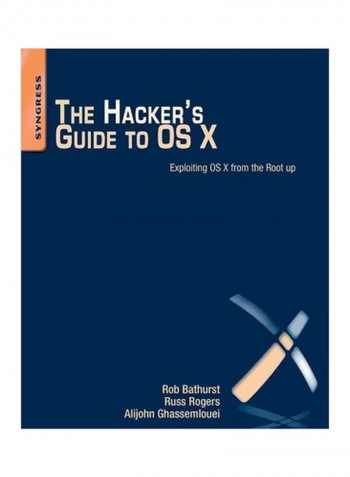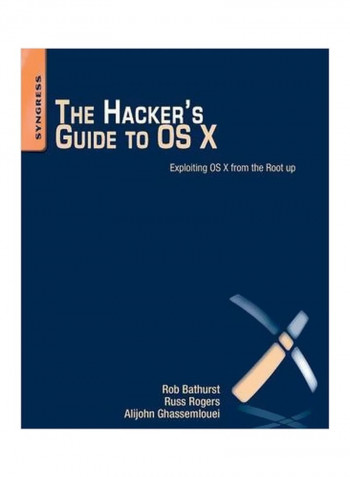The Hacker's Guide To Os X : Exploiting Os X From The Root Up Paperback English by Robert Bathurst - 15 December 2012
Recommend
Sort by
Rating
Date
Specifications
Author 1
Robert Bathurst
Book Description
Written by two experienced penetration testers the material presented discusses the basics of the OS X environment and its vulnerabilities. Including but limited to; application porting, virtualization utilization and offensive tactics at the kernel, OS and wireless level. This book provides a comprehensive in-depth guide to exploiting and compromising the OS X platform while offering the necessary defense and countermeasure techniques that can be used to stop hackers As a resource to the reader, the companion website will provide links from the authors, commentary and updates.
ISBN-10
1597499501
Language
English
Publisher
Syngress Media,U.S.
Publication Date
15 December 2012
Number of Pages
248
About the Author
Rob Bathurst is currently a cyber security researcher and penetration tester focusing on reverse engineering. He has spent over a decade doing vulnerability assessments, programming, and network engineering for the government, military, and private industry. Since his first encounter with Apple DOS at a young age, his eventual mastery of the infuriating System 7, and witnessing the advent of OS X, he has always wanted to know the inner workings of the newest Cupertino magic boxes. Russ Rogers (CISSP, CISM, IAM, IEM, Hon. Sc.D.), author of the popular "Hacking a Terror Network: The Silent Threat of Covert Channels" (Syngress, ISBN: 978-1-928994-98-5), co-author of multiple books, including the best-selling "Stealing the Network: How to Own a Continent" (Syngress, ISBN: 978-1-931836-05-0) and "Network Security Evaluation Using the NSA IEM" (Syngress, ISBN: 978-1-59749-035-1), and former editor-in-chief of The Security Journal, is currently a penetration tester for a federal agency and the co-founder and chief executive officer of Peak Security, Inc., a veteran-owned small business based in Colorado Springs, CO. Russ has been involved in information technology since 1980 and has spent the past 20 years working as both an IT and InfoSec consultant. Russ has worked with the U.S. Air Force (USAF), National Security Agency (NSA), Defense Information Systems Agency (DISA), and other federal agencies. He is a globally renowned security expert, speaker, and author who has presented at conferences around the world in Amsterdam, Tokyo, Singapore, Sao Paulo, Abu Dhabi, and cities all over the United States. Russ has an honorary doctorate of science in information technology from the University of Advancing Technology, a master's degree in computer systems management from the University of Maryland, a bachelor of science degree in computer information systems from the University of Maryland, and an associate's degree in applied communications technology from the Community College of the Air Force. He is a member of ISSA and (ISC)2 (R) (CISSP). Russ also teaches at and fills the role of professor of network security for the University of Advancing Technology. Alijohn Ghassemlouei is a Cyber Security Specialist and Certified Ethical Hacker. In his current position he administers networks Linux/Unix/OS systems in a penetration testing lab, and performs penetration testing attacking a diverse range of classified and unclassified hosts and operating systems. In addition he presents technical demonstrations and briefings to U.S. congressmen, top-level DOE officials, and DOE security conference attendees. As a Black Hat Conference Volunteer he coordinates tasks and delegates responsibilities.
Author 2
Russ Rogers
Author 3
Alijohn Ghassemlouei
Editorial Review
Authors Robert Bathurst, Russ Rogers and Alijohn Ghassemlouei detail the fundamentals of the OS X environment and its many vulnerabilities...The book is a like a slimmed-down version of Hacking Exposed for the Mac...in that it both shows how to attack the operating system, in addition to detailing defensive measures to stop attackers. --RSAConference, March 2013



